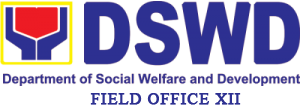Koronadal City – Thousands of people converged Sunday for a day-long historic family day in Koronadal City.
The event, facilitated by the Department of Social Welfare and Development, showcased the success of people government by the conditional cash transfer program in the region since 2008.
Zorahayda Taha, DSWD 12 regional director, said during the event a campaign called “Kaya ko ang Pagbabago” was also launched.
Among those who attended the event was Johnny Tolentino of T’boli, South Cotabato.
In 2009, Tolentino was among the poorest of the poor in the DSWD’s list of CCT beneficiaries. He said the cash grant he received that year helped him send his children to school at the time when the family was barely surviving.
In 2011, Tolentino’s break came when they heard about the P10, 000 loan for CCT beneficiaries. From a half-a-hectare parcel of land of their wealthy neighbour, he used the money to finance their vegetable garden, earning about Php 300,000 from his first harvest.
Taha said South Cotabato-based dance group, Xtreme, performed in the event.
The group emerged as champ in the recent 6th Gatsby Dance Competition Asian Finals in Tokyo, Japan last March this year.
At the same time, the dance group won in the recently concluded World Championships of Performing Arts (WCOPA) held in Hollywood, California from July 11-18, 2014.
In Central Mindanao, around 217,000 families were covered by the program.
Under its conditions, the CCT allocates grants P500 to P1, 400 for each beneficiary households, depending on the number of eligible children. Each family is allowed a maximum of three children to receive the monthly benefits.
It calls children aged 3 to 14 to stay in school and maintain class attendance of at least 85 percent each month. Pregnant women are also required to avail pre- and post-natal care, and delivery must be assisted by skilled health personnel, while parents are mandatory to take “family development sessions” to enable them to become better parents. Malacañang’s goal is to enlist more 2.34 million families into the program. (End)
